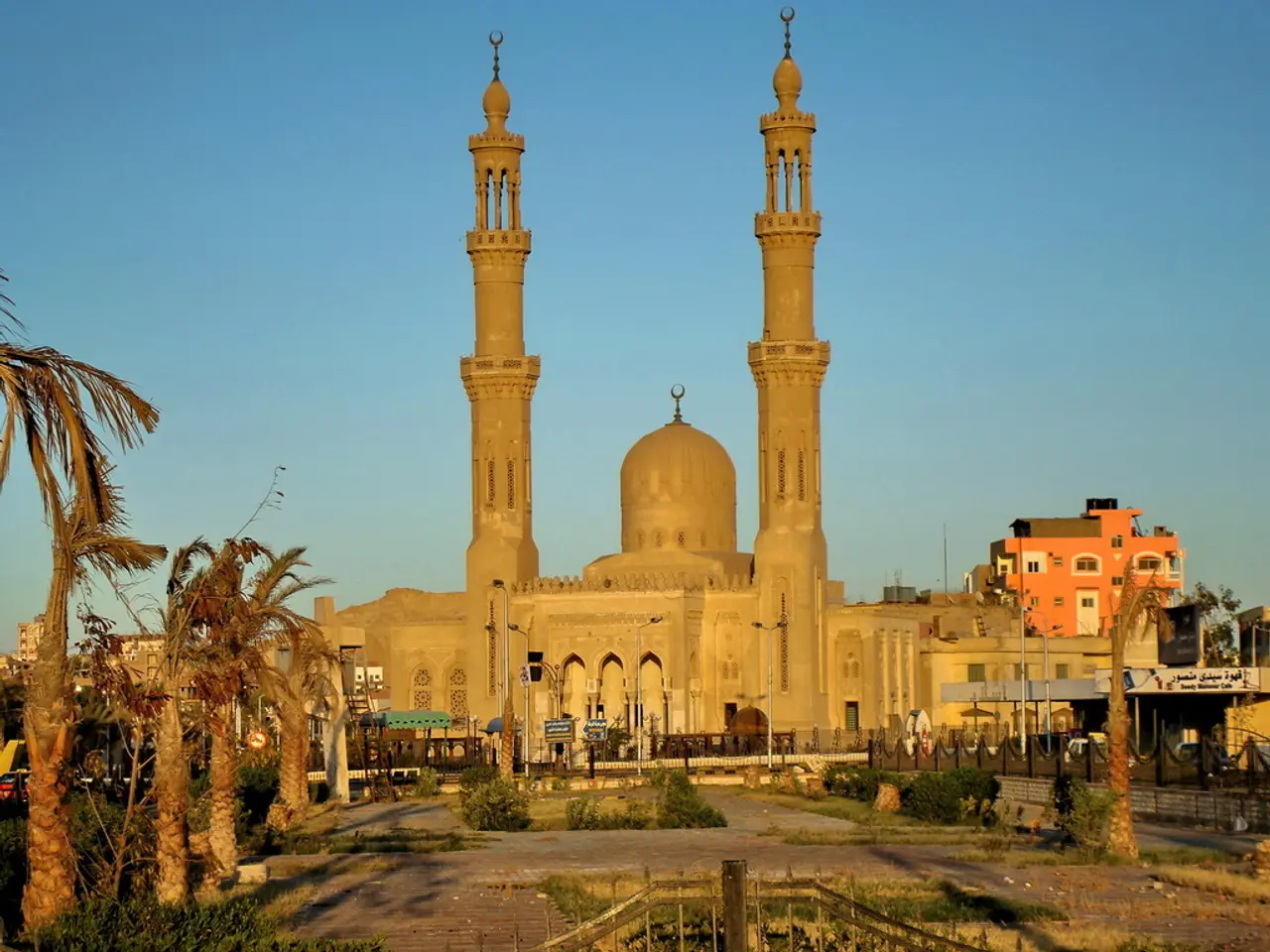District in Beirut resists Lebanon's segregation efforts
In the heart of Beirut, the bustling Hamra district once served as the cultural epicenter of the city in the 1960s and '70s. Known for its numerous cinemas and theaters, it was a place where East met West, art intertwined with politics, and daily life coexisted with big ideas. However, the civil war in 1975 and the subsequent Israeli occupation in 1982 led to the district's destruction.
Fast forward to the present, and Hamra is undergoing a transformation. After the devastating explosion in Beirut's port in August 2020, which claimed over 200 lives, the residents of Beirut rallied together, cleaning up the city, distributing meals, and supporting their neighbors. This spirit of resilience is embodied by Naim Saleh, who has been selling newspapers and books on Hamra Street for over 50 years.
One of the few remnants of Hamra's golden era is the Metro Al Madina theater. In its heyday, Lebanese singer Fairuz and Egyptian actor Adel Emam performed on Hamra's stages, while the Egyptian singer and actor Abdel Halim Hafez, Syrian poet Nizar Qabbani, and Syrian-Egyptian singer Farid al-Atrash frequented the Horseshoe cafe.
Now, Kassem Istanbouli, an actor, director, and founder of the Lebanese National Theater, is working to revive several venues in Lebanese cities, including the iconic Le Colisee theater. The building, previously announcing concerts by Egyptian singer Mohammed Mounir, now displays a new sign: Lebanese National Theater.
The reopening of Le Colisee comes at a politically tense time, with the new government endorsing a US-backed plan to disarm Hezbollah and bring all weapons under state control by the end of the year. However, Hezbollah's new secretary-general, Naim Kassem, has rejected this plan.
Despite these challenges, the organizers of Le Colisee's revival aim to transform the cinema into a space for art, film, theater, workshops, and festivals. They have received support from the Tiro Association for Arts and a network of volunteers, as well as the French Institute.
As Le Colisee prepares to reopen on September 13, it serves as a symbol of hope and resilience for the people of Beirut and all of Lebanon. For many, like Haitham, a resident of Hamra, the reopening of Le Colisee brings back memories of the district's lively atmosphere from their childhood.
The economic collapse of 2019 has led to the closure of long-established stores and cafes in Hamra. Yet, the spirit of Hamra remains, thanks to individuals like Naim Saleh and Kassem Istanbouli, who aim to decentralize cultural life in Lebanon, allowing audiences and artists to travel between different regions. In doing so, they are preserving cultural treasures, identity, and shared social memories for Beirut and all of Lebanon.
Power cuts in Hamra cause the district to go dark early in the evening, a stark reminder of the challenges faced by the city. However, the resilience of the people of Beirut shines through, as they continue to rebuild and revive their city, one step at a time.
Read also:
- Peptide YY (PYY): Exploring its Role in Appetite Suppression, Intestinal Health, and Cognitive Links
- Toddler Health: Rotavirus Signs, Origins, and Potential Complications
- Digestive issues and heart discomfort: Root causes and associated health conditions
- House Infernos: Deadly Hazards Surpassing the Flames






